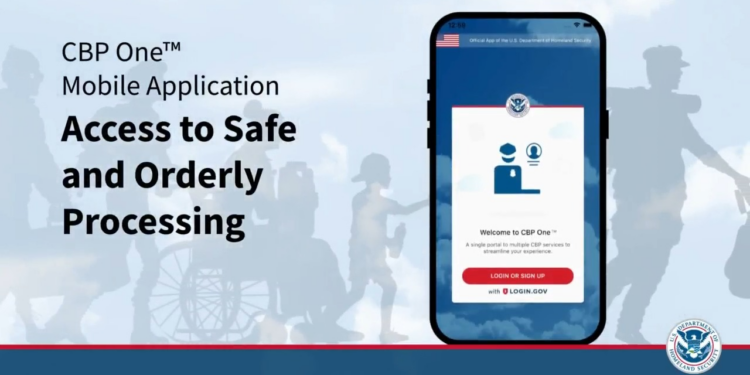On Monday, January 20th, the Trump administration officially shut down the CBP One mobile app, a program initiated under President Biden’s administration to facilitate the legal entry of migrants into the United States. The app allowed asylum-seeking individuals to schedule appointments at U.S. ports of entry, providing a structured pathway for those who might otherwise cross the border illegally.
Minutes after taking the oath of office, President Trump’s administration posted an announcement on the CBP One website, declaring the app no longer operational and canceling all existing appointments.
The CBP One app, launched in early 2023, enabled approximately 1,450 migrants per day to schedule appointments for entry into the U.S. through legal ports of entry. By the end of 2024, more than 900,000 individuals had used the app to navigate the asylum process. As of January 2025, reports indicated that around 30,000 migrants had scheduled appointments through the app.
The decision to end the program has left many migrants uncertain about their futures. At the El Chaparral border crossing in Tijuana, Mexico, migrants like Maura Hernandez, who had traveled from Michoacán with her children, were shocked to find their appointments had been canceled. Hernandez had been expecting to present her family at the port of entry for asylum.
The shutdown of the CBP One app is part of a broader shift toward stricter immigration controls as the Trump administration implements policies to reduce illegal crossings. Critics of the app, particularly Republican lawmakers, had long viewed it as an avenue for facilitating illegal immigration. “The fact that this application exists is the most underreported scandal of the Biden administration,” said Vice President JD Vance, calling the app a tool to allow migrants into the U.S. under the guise of legal entry.
As Trump prepares to sign a series of executive orders focused on tightening border security, the fate of many migrants currently waiting to use the app remains uncertain. For now, the shutdown represents the first significant step in a broader effort to reshape U.S. immigration policy.










